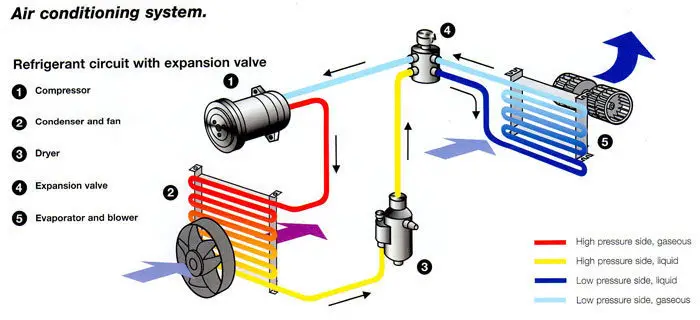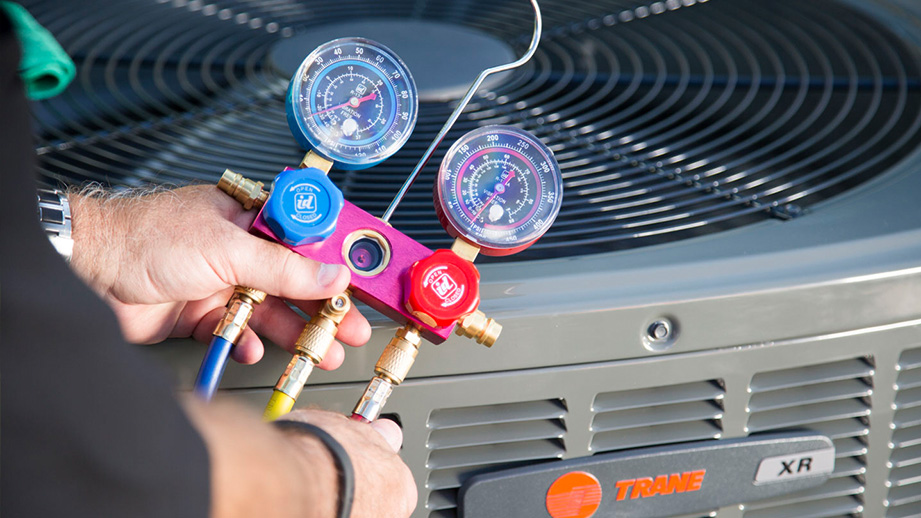When it involves your air conditioning system, resolving water leaks resembles placing a bandage on an injury - necessary for peak functioning. Wondering why your a/c is leaking water? Allow's explore the hidden causes behind this typical problem, unwind sensible remedies to troubleshoot leakages, and comprehend the value of punctual repair services.
Stay tuned to reveal the trick to keeping a cool, leak-free environment in your house.
Trick Takeaways
- Normal upkeep avoids AC water leakages by unclogging drain lines.
- Prompt repair work and assessments extend unit life-span and prevent mold and mildew development.
- Do it yourself troubleshooting includes checking filters, pumps, and condensate lines.
- Expert support guarantees appropriate drain and addresses underlying concerns effectively.
Common Root Causes Of A/c Water Leaks

One typical reason your air conditioning device might be dripping water is because of a stopped up condensate drain line. To prevent this issue, normal upkeep is essential. You can stay clear of blockages by periodically flushing the drain line with a blend of bleach and water. This basic maintenance pointer helps maintain the line clear, enabling water to flow openly and decreasing the danger of leaks.
If you observe water pooling around your air conditioning system, it is necessary to address the problem promptly. Disregarding the concern can bring about water damages and mold and mildew development. In many cases, you might require specialist assistance to unblock the drainpipe line successfully. A certified specialist can examine your unit, clear any kind of clogs, and make sure proper drain.
How to Recognize a Water Leak
If you notice water merging around your AC unit, a typical sign of a leakage, it is essential to promptly determine the resource of the concern. Drip detection is essential in stopping more damage to your a/c system. Begin by checking for any kind of visible indicators of water leakage, such as pools or drips around the device. Evaluate the drainpipe line for blockages or obstructions that might be causing water to support. Furthermore, look for any type of fractures or holes in the condensate pan that can be enabling water to leave.
Condensation management is one more essential aspect of identifying a water leakage. Make sure the condensate line is properly linked and draining pipes as it should. Occasionally, incorrect installment or damages to the line can lead to leakages. Check the insulation around the line too, as any deterioration can cause condensation to develop in unplanned areas.
Do It Yourself Troubleshooting Tips
Wondering just how you can troubleshoot water leaks from your air conditioning unit on your own? Below are some DIY repairing suggestions to aid you attend to the issue effectively:
- Examine the Filter: Beginning by examining and cleaning up the air filter. ac not turning on A clogged up filter can limit air movement, leading to ice buildup and eventually causing water leakages.
- Inspect the Condensate Pump: Ensure that the condensate pump, responsible for eliminating excess dampness, is working appropriately. If it's not working, water might collect and leakage.
- Look for Blockages: Check for any type of obstructions in the condensate drain line. Debris or algae buildup can hinder proper drainage, leading to leaks.
- Check Out the Cooling Agent Levels: Reduced cooling agent degrees can trigger the evaporator coil to ice up, leading to water leakage. If you believe this problem, speak to a professional for aid.
- Display the Thermostat Setups: Inaccurate thermostat settings can create the system to run longer than essential, possibly triggering excessive condensation. Adjust the setups to make sure peak performance and prevent leaks.
Relevance of Timely Services
Dealing with water leaks from your air conditioning system immediately is essential to stop more damage and preserve peak efficiency. Prompt fixings offer considerable benefits, consisting of prolonging the life expectancy of your unit, improving power effectiveness, and protecting against pricey water damage to your residential property. Overlooking these leakages can lead to mold development, structural damage, and possible carcinogen.
To guarantee your air conditioning unit runs efficiently, routine upkeep is vital. Straightforward upkeep suggestions such as cleansing or changing air filters, checking for blocked drainpipe lines, and examining the condensate frying pan can assist protect against water leaks. Additionally, organizing professional inspections at least once a year can capture any potential issues early on and stop them from rising right into major troubles.
Avoiding Future Water Leaks
Interested how you can proactively avoid future water leakages from your a/c system? Below are some necessary actions to assist you keep your device and prevent prospective issues:
- Regular Maintenance Schedule: Establish a routine upkeep schedule with a professional cooling and heating professional to guarantee your device is correctly examined and serviced.
- Tidy the Condensate Drain: Consistently inspect and clean up the condensate drain to stop clogs that can result in water leakages.
- Examine Insulation: Examine the insulation around your a/c unit to ensure it's intact and appropriately secured, stopping condensation build-up.
- Replace Air Filters: Frequently replace or clean air filters to avoid dust and particles from obstructing airflow and triggering leakages.
- Screen Water Levels: Keep an eye on the water degrees in the condensate pan to discover any kind of unusual boosts, showing a potential problem that needs interest.

Regularly Asked Inquiries
Can Water Leaks From an Air Conditioning Device Reason Damages to the Surrounding Walls and Floors?
Water leakages from any appliance can lead to severe damage. Protecting your flooring is necessary when handling leaks.
Apply safety nets to avoid prospective concerns. Waterproofing services can assist avoid considerable wall surface damage.
Be positive in dealing with leaks to safeguard your home's framework.
Are There Any Type Of Wellness Dangers Related To Water Leakages From a Cooling Unit?
When it pertains to health and wellness effects, water leakages from your air conditioning system can lead to mold and mildew development, which can activate allergic reactions and respiratory problems. To prevent this, guarantee regular upkeep of your unit and promptly resolve any leaks.
Likewise, be attentive regarding indicators of water damage, as it can jeopardize your indoor air high quality. On a regular basis checking for leakages and resolving them promptly can assist maintain a healthy living atmosphere.
Exactly How Can I Figure Out if the Water Drip From My AC System Is a Minor Problem or a Significant Problem Requiring Professional Repair Work?
When reviewing water leaks from your a/c device, you can start with DIY repairing like checking for clogs or leakages in the water drainage system. If concerns persist, it's wise to consider a specialist evaluation for a more precise medical diagnosis.
While fast solutions might provide momentary alleviation, long-term services typically need the expertise of a trained service technician to avoid future troubles and ensure your system's ideal performance.
Is It Possible for Mold or Mold to Develop as an Outcome of a Water Leak From an A/c Unit?
Yes, mold prevention is vital when dealing with water leaks from your air conditioning unit. Regular upkeep and leak discovery are essential to stop mold and mildew or mold growth.
Are There Any Kind Of Possible Electric Risks That Can Emerge From Water Leakages in an A/c System?
Prospective hazards from water leakages in a cooling device can include electrical safety threats. When water enters call with electrical elements, it can result in short circuits, electric fires, or damage to the system.
It's crucial to resolve any type of leaks immediately to avoid these threats. Routine maintenance and assessments can aid you determine and deal with any issues prior to they intensify into even more substantial issues.
Final thought
Don't neglect water leakages from your AC device. Addressing them quickly can guarantee pricey damages and make sure your system runs effectively.

Remember to frequently evaluate your device, clean the condensate line, and change filters as needed. Taking these simple actions can aid you prevent possible headaches in the future and maintain your home cool and comfy.
Keep proactive and maintain your air conditioning in top shape!

